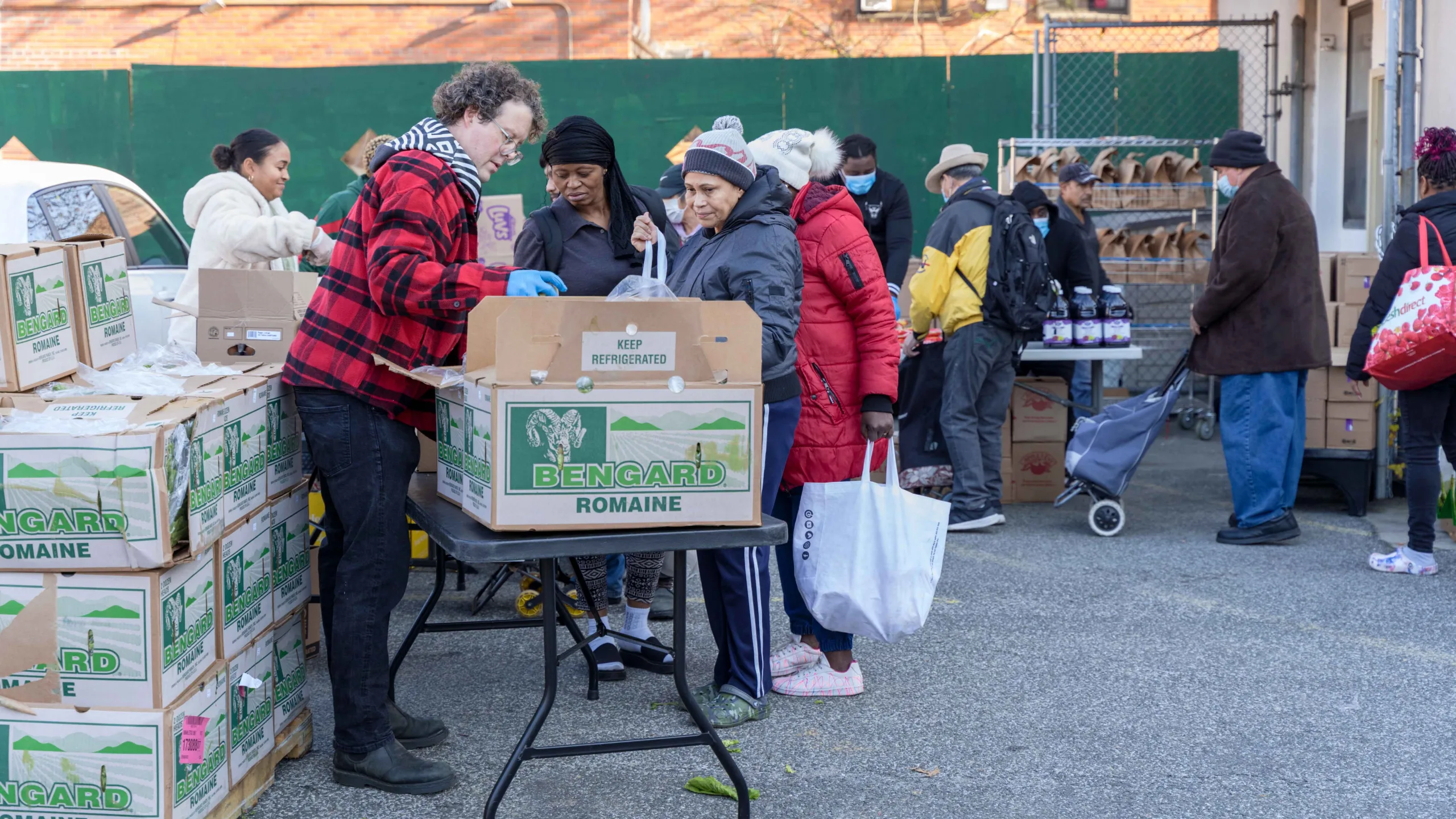There are more than 11 million immigrants in the United States who do not have a lawful status, for purposes of immigration, or are considered undocumented. For the past two years since the launch of Documented Semanal– our Spanish newsletter – our members have grown to more than 2,500 New Yorkers who speak with us directly via WhatsApp. 60% identify themselves as undocumented. We have received multiple questions from them regarding the different paths to “fix” their status and how to obtain a green card in the United States.
We spoke with immigration experts to answer their most frequently asked questions. One thing they all agreed on is this: obtaining a lawful status is very complex and depends on the circumstances of each individual. It is best to consult with an immigration attorney.
This article, along with the quotes mentioned, are solely for informational purposes only and does not constitute legal advice. For legal assistance please see our list of Pro-bono Lawyers in New York.
Do you have additional questions that we should answer? Send an email to info@documentedny.com or a message to our WhatsApp chat.
Also read: Guide of Resources for Immigrants
Q: Who is an undocumented immigrant?
While the term undocumented is often associated with those who had entered the country without inspection, many Visa holder categories—like F-1 Visa (Academic Student) and B-1/B-2 Visas (Visitors/Tourists) for example—can be considered undocumented once their document expires and they have continued to reside (overstay) in the U.S.
Q: How can an undocumented immigrant apply get a temporary or permanent lawful status?
There are multiple paths that one can take to obtain a legal status, and each path will differ depending on the circumstances that are applicable to the immigrant. There are also permanent and temporary categories. Some categories are faster, too. The best way to find out which category will best fit your needs is to speak with an inmigration attorney.
One can apply through marriage to a citizen or Lawful Permanent Resident (LPR), by petition of a U.S. citizen or LPR relative, and even through employment under certain requirements. There are also categories for Victims of Domestic Violence (VAWA), victims of other criminal activities (U Visa), and victims of trafficking (T Status). There are also special categories for nationals from certain countries.
“When we have undocumented people visit us or ask us questions, we listen to their story and try to make some connections to either existing family that might be here. So we try to seek avenues of green cards through family connections…” Shawn Rahman, Esq. Managing Attorney, Training and Capacity Building at CUNY Citizenship Now!, said. He added that there are many ways an individual could qualify to get a permanent or temporary lawful status in the country.
Q: Does it make a difference how one entered the country?
How one entered the country can affect the process of obtaining residency. Those who had been admitted or paroled to the U.S. can apply for an adjustment of status while in the country. Someone who does not have a record of being admitted or paroled will most likely have to leave the country and present themselves in an U.S. consulate abroad.
Q: Can individuals leaving the country be detained or sent to jail for their unlawful entry?
All persons leaving the country will have to pass by security checkpoints, where a Transportation Security Officer (TSA) will check their passport. For those who do not have a Visa stamped on their passport (meaning they are undocumented/or overstayed), they could be pulled to the side by a Customs and Border Protection (CBP) officer who will determine detainment and/or removal procedures.
“When you are at a border you always have diminished rights. It is rare to have some detained when they seek exit. If you have a criminal warrant you may be arrested. If you overstayed, you are not likely to be detained but your departure will be electronically noted in a variety of ways. While the United States does not have a formal ‘exit visa’ requirement, the government does collect data from airline manifests and entry swipes of passports in the next country,” Lenni B. Benson, Distinguished Chaired Professor of Immigration and Human Rights Law at New York Law School, said.
When leaving, the three or ten year bar will also be triggered (see unlawful presence section below).
If you are traveling out of the country and are detained at the airport, but have an ongoing adjustment of status, Rahman recommends having your “attorney present it to Immigration and Customs Enforcement (ICE) as soon as possible.”
Q: Is there a specific time period in which I can obtain a green card?
The timeframe of the application process can also vary. For marriage based visas, for example, Benson said that the process can depend on two components. “First, is your immigration category subject to a quota limit? Some categories of immigration have no delay, like a marriage to a U.S. citizen. But marriage to a lawful permanent resident or derivative immigration status because your spouse is immigrating through a family or employment sponsor means you can be subjected to quota delays.”
To summarize: unless congress passes a legislation similar to Immigration Reform and Control Act of 1986 (IRCA)— which granted amnesty to millions of eligible immigrants who had been in the United States for a certain period of time– there is no straight answer to how an undocumented immigrant can fix their status, nor how long the process would take.
Also read: Pro-Bono Lawyers And Free Legal Immigration Services in New York
Q: For those who accrue unlawful presence, how can they avoid being barred from entering the United States for ten years?
Under immigration code 212(a)(9)(B)(ii), individuals who have resided in the United States past the expiration date of their authorized stay by Department of Homeland Security (DHS) (overstaying your Tourist Visa, for example) will accrue unlawful presence. Those who accrue 180 days of unlawful presence but less than a year will be banned for three years from entering the United States. Those who accrue more than 365 days, or a year, will be banned for ten years.
There are many reasons why a person would not be able to leave the country—as seen during the beginning of the pandemic when the airports closed. However, an extension is often required and recommended by USCIS so that your future travels won’t be in jeopardy.
Q: Are you going to be detained when you try to leave the country if you overstayed?
“If you overstayed, you are not likely to be detained but your departure will be electronically noted in a variety of ways…. If your overstay was brief, excusable, explainable, etc., you may find that you can still apply for and obtain a visa stamp to return as a visitor or other temporary category.…There is also a permanent bar in the statue,” Benson said.
Q: What is a permanent bar?
A permanent ban, Rahman explained, occurs when a person who is inadmissible (for example being barred for ten years) enters the country without inspection again. “There’s a form called I-212 [Application for Permission to Reapply for Admission into the United States After Deportation or Removal] that is sort of like a permission to reapply after removal,” Rhaman said.
Q: What are the waivers for the three and ten year bans?
Waivers for the three and ten year bans are found in two provisions, Benson said:
Waiver for a return as a nonimmigrant: See INA § 212(d)(3). This waiver is only for a temporary return. It is one of the most generous waivers in the entire law but the process must be carefully followed and it can take some time. You will have to show why your return is only for a bona fide temporary purpose.
Waiver as an immigrant: See INA §212(a)(9)(B)(v). This section allows for a waiver of the bars if your spouse or parent is a lawful permanent resident (green card holder) or U.S. citizen. Having U.S. citizen children is a factor but not sufficient. See the criteria and procedures.
Also read: Advance Parole: How DACA Recipients Can Travel and Re-Enter the Country
Q: Can an undocumented immigrant apply for an employment type of Visa while in the United States?
There is no single or simple answer, Benson said, adding “some people qualify to seek a nonimmigrant visa with work authorization, e.g., a person who is nationals of a country where we have a treaty of investment and/or trade. Some people may qualify based on a special grant of Temporary Protected Status or TPS. Everyone has a unique situation and should seek individualized legal consultation.”
There are certain categories of employment visas that require individuals to have a sponsor apply first before they enter the United States. They are temporary categories that can be extended by an employer, too. For individuals who are already in the country they can also apply for certain employment visas that fits their eligibility, talent, career, etc. Sometimes it also depends on the interests of the country.
“I would sort of ask where do you work, who do you work for, or do they want to sponsor you? If we determine somebody has a special skill, then we might recommend to them to look into one of the preference categories for immigrant workers,” Rahman said.
Q: What if I don’t have a sponsor for an employment related type of visa?
Certain individuals can still be allowed to work in the U.S. if they do not have a sponsor but qualify for an Employment Authorization Document (EAD) under certain categories, like Deferred Action for Childhood Arrivals (DACA) or Temporary Protected Status (TPS). These categories permit eligible individuals to apply for a work authorization while their status is active.
TestPost3
“Generally, the regulations on who qualifies for work authorization are found in 8 C.F.R. § 245A.12. There are categories of people who are able to seek a work permit because of special circumstances, e.g., Afghans granted parole admission, Ukrainians granted parole permission, people granted “deferred action,” people seeking asylum and the application has been pending the required length of time, etc. There is no catch-all work permit,” Benson said.
Q: Are undocumented immigrants eligible for U Visa even if they do not have a record of entering the country?
Passed along with the Victims of Violence and Trafficking Act in 2000, the nonimmigrant U visa is designated to immigrants who have been victims of mental and/or physical abuse and have collaborated with law enforcement. Some of the crimes include rape, kidnaping, extortion, incest, etc.
For individuals who do not have a lawful status nor admissibility record, who qualify for the U status route, they must file a waiver. “The criteria for U Visa is to not have run a foul on the grounds of inadmissibility, and to be admissible you have had a lawful admission. Form I-192 helps you overcome the inadmissibility issues.”, Rahman said.
Also read: Domestic Violence Resource List












